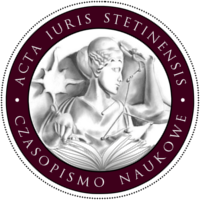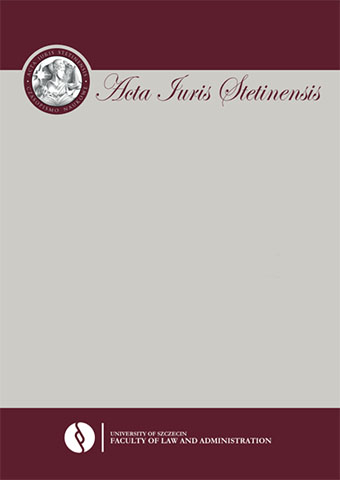







| Authors: |
Olgierd
Bogucki

Wydział Prawa i Administracji Uniwersytetu Szczecińskiego |
| Keywords: | justice legal interpretation theory of law theory of legal interpretation philosophy of law |
| Data publikacji całości: | 2019 |
| Page range: | 16 (7-22) |
| Downloads ?: | 754 |
| 1. | Bogucki O., Model wykładni funkcjonalnej w derywacyjnej koncepcji wykładni prawa, Szczecin 2016. |
| 2. | Brighouse H., Sprawiedliwość, tłum. S. Królak, Warszawa 2007. |
| 3. | Hock Lai Ho, A Philosophy of Evidence Law: Justice in the Search for Truth, Oxford 2008. |
| 4. | Lindroos-Hovinheimo S., Justice and the Ethics of Legal Interpretation, New York 2012. |
| 5. | Miller D., Justice, w: The Stanford Encyclopedia of Philosophy (Fall 2017 Edition), red. E.N. Zalta, 26.06.2017, https://plato.stanford.edu/archives/fall2017/entries/justice. |
| 6. | Perelman C., O sprawiedliwości, Warszawa 1988. |
| 7. | Piszko R., Granice decyzji sądowych, Szczecin 2015. |
| 8. | Płeszka K., Językowe znaczenie przepisu jako granica wykładni, w: Filozoficzno-teoretyczne problemy sądowego stosowania prawa, red. M. Zirk-Sadowski, Łódź 1997. |
| 9. | Rawls J., A Theory of Justice, revised edition, Cambridge 1999. |
| 10. | Raz J., On The Nature of Law, „Archiv für Rechts- und Sozialphilosophie” 1996, nr 82. |
| 11. | Spyra T., Granice wykładni prawa, Kraków 2006. |
| 12. | Załuski W., O granicach wykładni prawa w kontekście sporu o relacje między sprawiedliwości i prawością, w: Wykładnia prawa. Tradycja i perspektywy, red. M. Hermann, S. Sykuna, Warszawa 2016. |
| 13. | Zieliński M., Wykładnia prawa. Zasady, reguły, wskazówki, Warszawa 2017. |
| 14. | Ziembiński Z., O pojmowaniu sprawiedliwości, Lublin 1992. |
| 15. | Ziembiński Z., Zarys teorii prawa, Poznań 1997. |